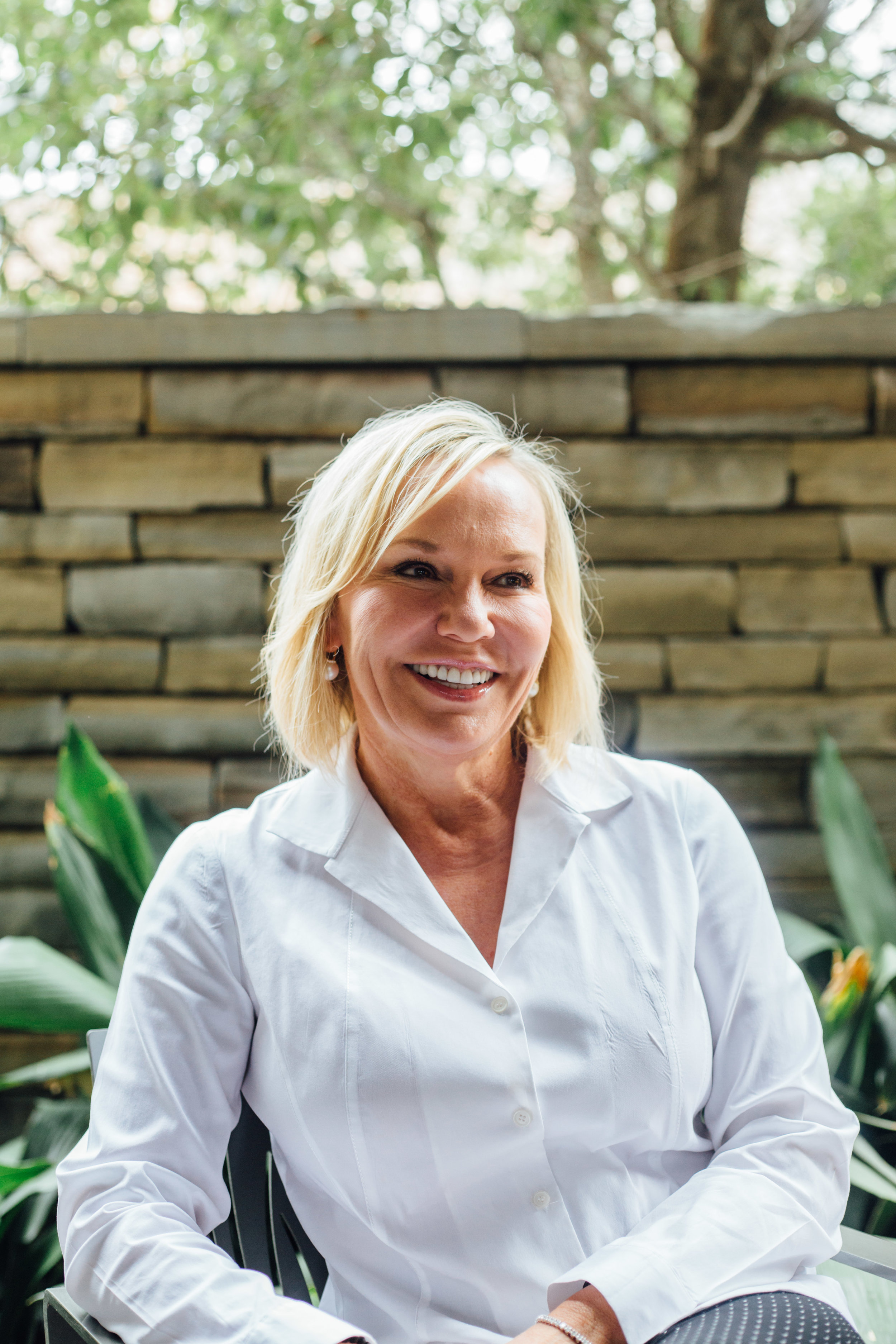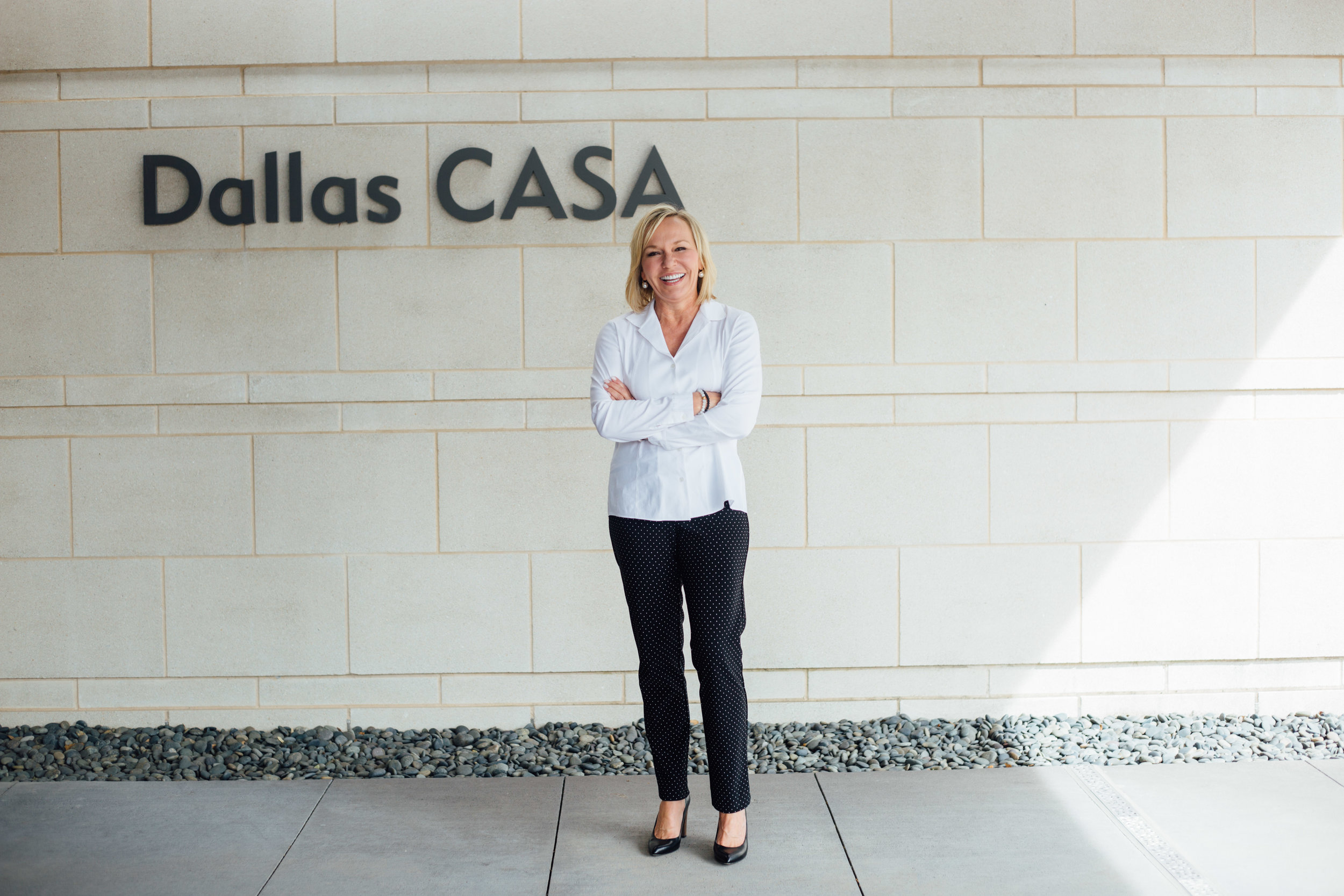Linda Swartz grew up in south Georgia, eventually making her way to Dallas, Texas 20 years ago. She is passionate about making an impact on the lives of kids in the foster care system because she understands their experience on a deeply personal level. Linda was a foster kid herself.

“When I was about 13 or 14, I went into foster care and stayed there until I aged out [at age 18]. I didn’t have an advocate…I didn’t have any consistent adults in my life,” Linda shared.
“When I came to Dallas, I continued working in the mortgage business, which I had been doing in Georgia. When I moved here, I was looking for something to do so I could give back to the community,” Linda said. Between working full-time, Linda began spending time at Jonathan’s Place, a temporary shelter for kids who have been taken from their home for reasons of either abuse or neglect. Because of the nature of the program, the turnover rate there is pretty quick, and Linda wanted to find a place in which she could build long-term relationships. A friend of hers suggested she volunteer as a Dallas CASA and 11 years later, she hasn’t turned back.
CASA stands for Court Appointed Special Advocate. At Dallas CASA, all the advocates work on a volunteer basis with kids who are navigating their way through the foster care system. To become an advocate is quite a rigorous process as you must be vetted by CASA to ensure you are not only a safe person for the kid to spend time with but also that you are up to the task. Volunteers go through a thorough background check, interview, 30 hours of training, and are finger-printed.
“When you get a case, you stay with that case until the child gets a permanent home. Sometimes it’s a few months, some times it is longer. The system says within 12 months the judge has to decide if a child can return home. If not, then additional time may be needed to find a safe, loving home,” Linda said.
As an advocate, Linda has participated in court many times over the years. As CASA has gained a strong reputation nationally, judges value the opinion of advocates. “When you go to court, the judge will ask you where you think the kid should or shouldn’t go,” Linda shared.
Right now, Linda is on two cases, both of which she has been on for two years already. One of the cases consists of four younger kids and the other, three teenagers. Time spent advocating is also time spent getting to know each child and building a relationship. Often, as the kids go through the process of being taken by CPS, then going to court for custody hearings, then possibly being placed in a foster home, group home, or with another relative, they don’t have a single consistent adult other than CASA. Each CASA volunteer gets to be that consistent friendly face that these kids need in a time of stress and confusion.
“A lot of times we just hang out at their house. They get excited, they’ll be like, ‘come look at my room!’ I just hang with them and talk to them about school and behavior. I have taken out the little ones, all four, for ice cream. Gotta have car seats and booster seats but I’ve done that,” Linda said. “When I knock on the door, I hear ‘Ms. Linda’s here!’ and I get the big hugs.”

Advocating on behalf of foster kids over the last 11 years means that Linda has been an integral part of the lives of about 20 kids. And the bonds don’t end when the kid has found a permanent home. “I’m friends on Facebook with the relatives of most of the kids I’ve worked with. It’s so cool, I’ve gotten to watch them grow up through the photographs relatives post of the kids,” Linda said.
Linda does not just advocate on a micro scale with CASA, but also on a macro scale. “Last week, I went to the state capitol building. We have CASA day at the Capitol. We take a couple board members, advocates, and staff members. We’re part of a legislative action team. We had appointments with our senators and representatives – we booked those ahead of time – and we talked about what our priorities are. We hit on reducing barriers for teens aging out of foster care to be able to obtain their documentation, and we talked about allowing the option for adopted foster kids with chronic health conditions to stay on Medicaid until they’re 18,” Linda shared.
She recognizes that while this is hard work, it is always well-worth it. “It does wear on you after a while, but then you have to remind yourself, ‘I’m that one constant face for those children.’ Kids will call me up and say, ‘when are you coming up here again?’ and it’s special to know I’m an important part of their lives,” she said.
When Linda was a 13 year old girl living in Georgia, she didn’t have an advocate. Her time moving through the foster system was characterized by an array of strangers coming and going. She looks back and sees how much she needed someone like that in her life. Now, she gets to be a part of ensuring that no kid has to go through this difficult situation alone.
If you know someone who is Doing Good in Dallas, we’d love to hear about it! Share their story with us.
Story and photos by Hunter Lacey.